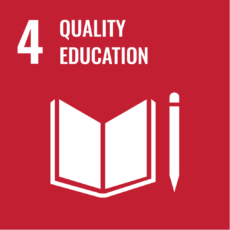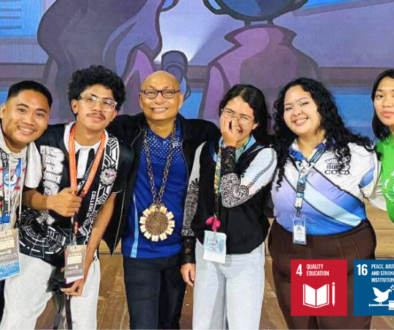
The Commission on Higher Education Regional Office VI (CHEDRO VI) has officially recognized 29 professors from the Iloilo State University of Fisheries Science and Technology (ISUFST) as members of the Regional Quality Assessment Team (RQAT) after a full day of orientation, NDA, and contract signing on Tuesday, September 23, 2025, at Iloilo Science and Technology University. The appointments run for three years and, when invited, allow evaluators to assist HEIs outside Western Visayas.
The orientation drew about 150 evaluators from the region—with almost all major universities and colleges represented—and aligned members with CHED policies, clarified roles and ethics, standardized tools, and reinforced reporting and feedback practices. The signed appointment state that RQAT members are “to discharge their function in the evaluation and assessment of higher education institutions (HEIs) applying for Government Authority to operate tertiary education programs, and to recommend appropriate action to the CHED Regional Office in relation to the issuance of Government Permit/Recognition and/or Certificate of Program Compliance (COPC).”
Prospective evaluators, CHEDRO VI explained, were first screened against set academic and technical criteria—advanced degrees, years of teaching and program management, mastery of their specialization, and a track record of research and publications. Only those who met the benchmarks and demonstrated integrity and sound professional judgment were deputized and invited to join the RQAT pool.

RQAT serves as CHED’s expert body for monitoring and evaluating degree programs toward COPC, ensuring parity, equity, and consistency across reviews. “Excellence is never by chance—it is a never-ending process,” said CHEDRO VI Director Raul C. Alvarez Jr., citing Lawrence Miller, an author of best-selling management and leadership books. He urged assessors to be like “noble gases—always on the right side: reliable, balanced, incorruptible, impartial, and noble,” and pressed three reminders: we can’t teach what we don’t have; teaching is leading; learning happens only when we teach. Alvarez challenged teams to sustain 100% COPC compliance, proactive feedback, and graduate employability.
ISUFST President Nordy D. Siason Jr. welcomed the certification, saying the trust comes with clear responsibility. “Being part of CHED’s RQAT is both an honor and a duty. Our faculty will show up with humility and rigor—listening to evidence, upholding fairness, and helping programs strengthen so students in Western Visayas and beyond receive the quality education they deserve,” Siason said.
Policy anchors discussed included CHED Administrative Order (CAO) No. 3, s. 2014 (guidelines for RQAT operations) and CMO No. 15, s. 2019 (requiring graduate research publication), which, according to OIC-Chief Education Program Specialist Dr. Danebeth G. Narzoles, reinforce a culture of quality, research, and continuous improvement.

ISUFST’s 29 RQAT members:
• Agriculture/Fisheries/Forestry/Biology/Chemistry/Natural Sciences: Dr. Noli L. Gerona; Dr. Roy C. Villanueva; Dr. Edgar M. Hortillosa; and Dr. Jescel B. Bito-onon.
• Information Technology/Computer Science: Dr. Wenda D. Panes; Dr. Noel P. Caliston; Dr. Renante A. Diamante; Dr. Mary Sol R. Baldevarona; and Dr. Jennifer C. Mamerto.
• Hospitality and Tourism Management: Dr. Ricardo J. Paborada Jr.; Dr. John Vincent I. Manalo; Dr. Judith B. Cordero; Dr. Michelle B. Pahayculay; and Dr. Pia P. Paz.
• Bindtech/Industrial Technology: Dr. Rodel D. Dosano.
• Teacher Education: Dr.Edmer D. Bernardo; Dr. Stephen Raymund T. Jinon; Dr. Matthew T. Lasap; Dr. Michelle P. Bales; Dr. Rene T. Estomo; Dr. Herman M. Lagon; Dr. Jeena A. Amoto; Dr. Frietzie S. Inayan; Dr. Ronilo V. Aponte; Dr. Joan M. Belga; Dr. Jerlyn D. Pama; Dr. Rizza S. Gumbao; and Dr. Bernie S. Bayogos.
• Humanities, Social Sciences and Communication: Dr. Daniel John Arboleda.

ISUFST, by far, has the most number of certified RQAT members in the region. The inclusion of its faculty in CHED’s pool reflects the university’s longstanding role in academic quality assurance and supports regional efforts to keep programs competitive and outcomes-based. Founded in 1957 as the country’s first and only fisheries university, ISUFST aligns this work with SDG 4 (Quality Education) and, through inter-agency partnerships, SDG 17 (Partnerships for the Goals).
Next steps include deployment to program evaluations across Region VI and, as needed, support to other regions, with CHED reiterating expectations of objectivity, fairness, and integrity throughout the term. (Herman Lagon/PAMMCO)














